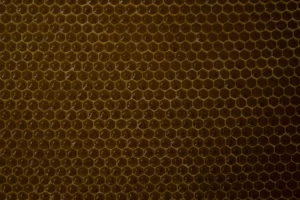Table of Contents
Introduction
Move over Manuka—Tualang honey is here to steal the spotlight. While Manuka honey has made a name for itself as a popular superfood, Tualang is the trending newcomer to watch, with many health benefits to boast. In this article, we will explore what Tualang honey is and the benefits you can expect from it. We will also examine its effectiveness in promoting heart health and compare it to Manuka honey.
What is Tualang Honey?
Tualang honey is a wild polyfloral or multi-floral honey created by bees with a wide foraging range, primarily from trees. The bees that produce this honey, known as Apis dorsata bees, build their honeycombs under the branches of the Tualang tree, which is native to the tropical rainforests of Malaysia. These trees are massive, reaching heights of over 300 feet. The smooth and slippery trunks of the Tualang tree make it difficult for predators to access the honey, making it highly appealing to the bees.
Harvesting Tualang honey is a challenging task as the beehives are typically located high up in trees. Skilled harvesters with special equipment are required to collect the honey, which contributes to its high cost. Some varieties of Tualang honey can cost well over $250 per kilogram, surpassing the pricing of Manuka honey.
In terms of appearance and flavor, Tualang honey varies widely. It is created from a variety of tree nectars, resulting in different colors such as black, yellow, white, red, and golden. The taste also varies, with some varieties offering bitter, sweet, sour, or floral notes.
Tualang Honey’s Benefits
When comparing Tualang honey to Manuka honey from a nutritional perspective, there are more similarities than differences. Both honeys have similar mineral content, contain the active compound methylglyoxal (MGO), and possess significant amounts of plant or phenolic compounds that offer antioxidant, antibacterial, and anti-inflammatory benefits. These similarities result in many shared health benefits, including wound healing.
However, Tualang honey has higher phenolic compound levels, which can lead to additional impressive benefits. Research has shown that Tualang honey has neuroprotective properties, improving cognition, memory, and relieving stress. It has also demonstrated antidepressive effects. One study found that Tualang honey protected cells from ultraviolet (UV) light radiation, potentially preventing skin cancer. Additionally, Tualang honey is highly effective in wound healing and reducing inflammation in the skin and eyes.
Remarkably, the bioactive compounds found in Tualang honey have shown potential in eradicating cancer-causing free radical molecules. Studies have indicated that Tualang honey might have the ability to kill off leukemia cells. Furthermore, supplementation of Tualang honey has been found to improve cancer-related fatigue and overall quality of life in head and neck cancer patients after treatment. Tualang honey may also offer cardioprotective benefits by improving cholesterol and cardiac enzyme levels.
Adding Tualang Honey to Your Routine
Considering its higher price point, you may wonder if Tualang honey is worth the extra cost. While it undoubtedly provides numerous health benefits, Manuka honey and raw honey, to a lesser extent, offer many of the same advantages. Tualang honey does not have an official grading system like Manuka honey, so you won’t find as many confusing acronyms on its label.
However, Tualang honey can be incorporated into your daily routine in the same ways as other honeys. It can be taken by the spoonful, spread on toast, or added to tea, smoothies, or oatmeal. As with any honey, moderation is key, as it is high in sugar.
In conclusion, Tualang honey offers a range of health benefits, including neuroprotective effects, wound healing properties, and potential anti-cancer and cardioprotective properties. While it may be more expensive than Manuka honey, both varieties provide similar nutritional profiles and health benefits. Whether you choose Tualang honey or another type of honey, incorporating it into your diet can be a delicious and beneficial addition to support your overall well-being.



